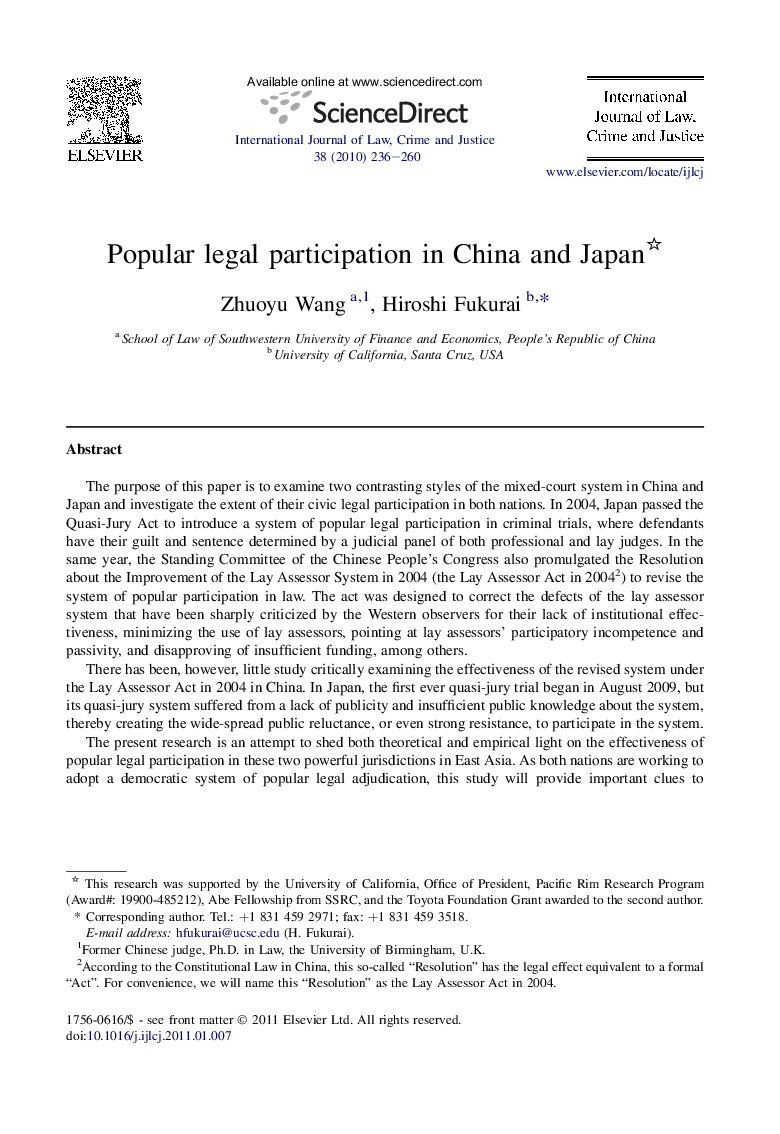| Article ID | Journal | Published Year | Pages | File Type |
|---|---|---|---|---|
| 1097982 | International Journal of Law, Crime and Justice | 2010 | 25 Pages |
The purpose of this paper is to examine two contrasting styles of the mixed-court system in China and Japan and investigate the extent of their civic legal participation in both nations. In 2004, Japan passed the Quasi-Jury Act to introduce a system of popular legal participation in criminal trials, where defendants have their guilt and sentence determined by a judicial panel of both professional and lay judges. In the same year, the Standing Committee of the Chinese People’s Congress also promulgated the Resolution about the Improvement of the Lay Assessor System in 2004 (the Lay Assessor Act in 20042) to revise the system of popular participation in law. The act was designed to correct the defects of the lay assessor system that have been sharply criticized by the Western observers for their lack of institutional effectiveness, minimizing the use of lay assessors, pointing at lay assessors’ participatory incompetence and passivity, and disapproving of insufficient funding, among others.There has been, however, little study critically examining the effectiveness of the revised system under the Lay Assessor Act in 2004 in China. In Japan, the first ever quasi-jury trial began in August 2009, but its quasi-jury system suffered from a lack of publicity and insufficient public knowledge about the system, thereby creating the wide-spread public reluctance, or even strong resistance, to participate in the system.The present research is an attempt to shed both theoretical and empirical light on the effectiveness of popular legal participation in these two powerful jurisdictions in East Asia. As both nations are working to adopt a democratic system of popular legal adjudication, this study will provide important clues to measuring the nations’ commitment, as well as the success or failure of the respective governments’ efforts, to democratize their systems of popular participation in legal decision-making.
